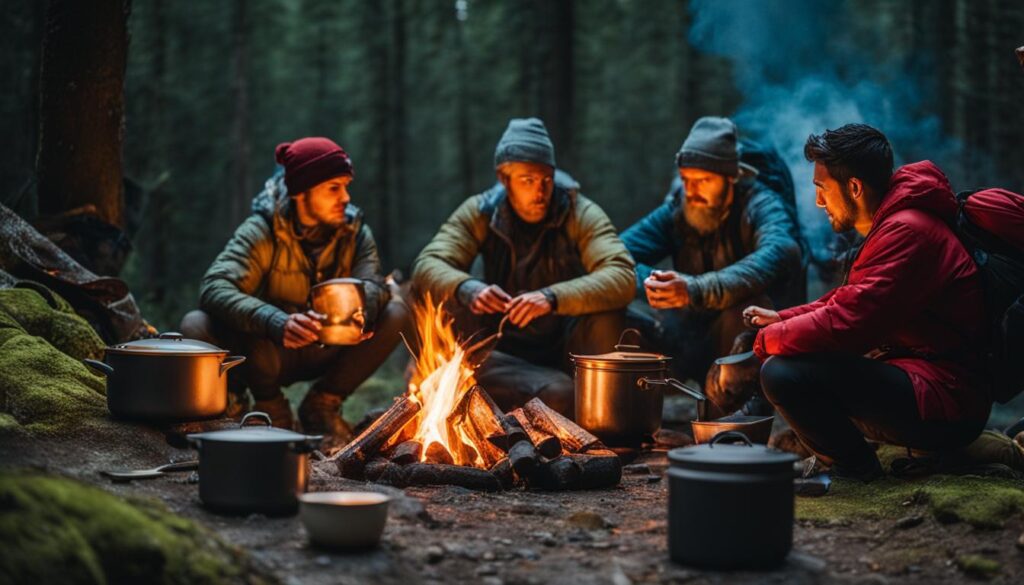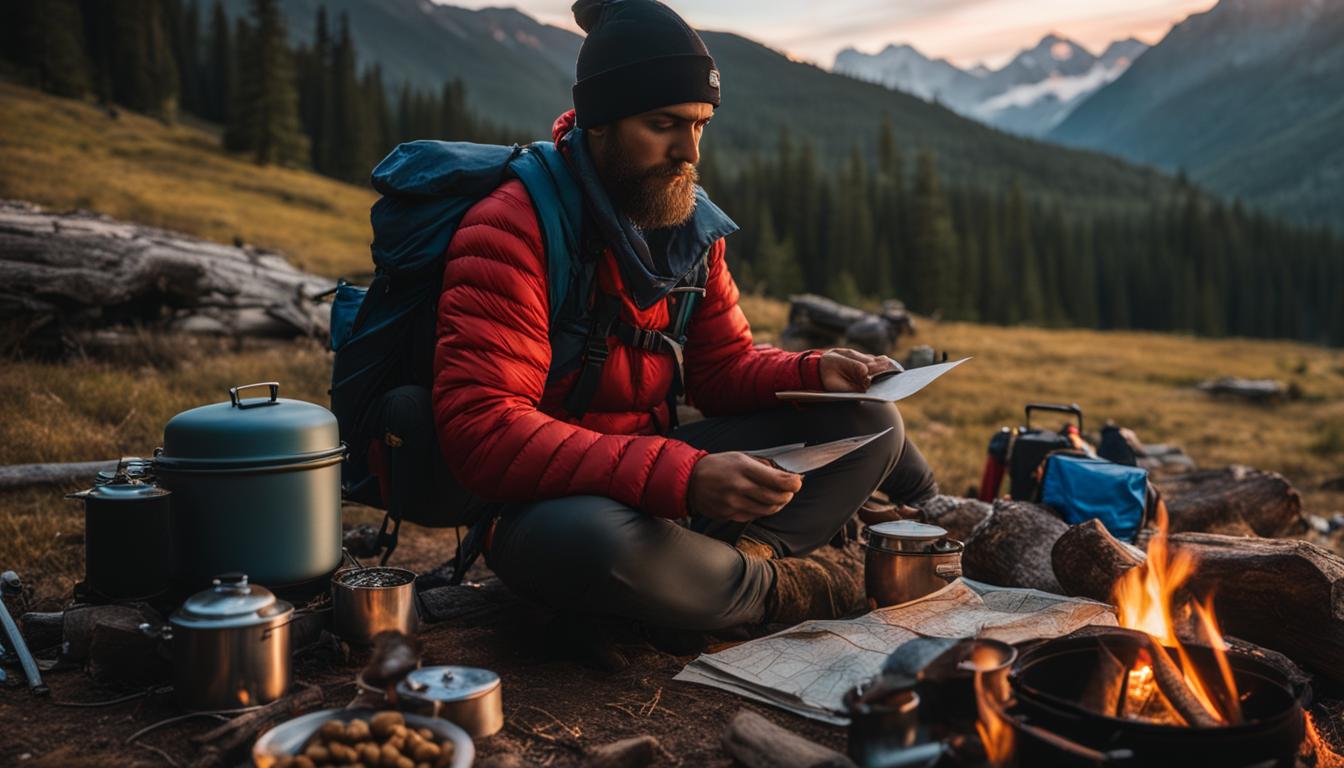Meal planning is an essential aspect of backpacking adventures. Properly planning meals can provide you with the fuel and sustenance you need to tackle the trails and make the most of your outdoor experience. Here are some practical tips for meal planning on backpacking adventures:
Essential Tips for Backpacking Meal Prep
Meal prep is a crucial part of backpacking meal planning. Here are some essential tips to help you with your backpacking meal prep:
What Are Some Meal Planning Tips for First-Time Backpackers?
When meal planning for a backpacking trip, consider lightweight, non-perishable food items like dehydrated meals, energy bars, and trail mix. Pack a portable stove or campfire-friendly cookware for easy meal preparation. Research trail conditions and duration to determine appropriate food quantities. These are top tips for backpacking beginners.
Final Thoughts: Find Your Strategy
Meal planning on backpacking trips is a personal process, and finding a strategy that works for you is essential. Here are some final thoughts to help you find your backpacking meal planning strategy:
Key Takeaways:
- Plan your meals in advance to ensure you have enough food for your backpacking adventure.
- Consider the weight and shelf-stability of the foods you choose for easier transport.
- Include a mix of macronutrients to provide sustained energy throughout your trip.
- Don’t forget to pack snacks and treats to keep your spirits high on the trail.
- Experiment with different meal ideas to keep your backpacking menu interesting and enjoyable.
Remember, meal planning is all about personal preference and finding what works best for you. With these tips, you’ll be well-prepared to fuel your backpacking adventures and make the most of your time in the great outdoors.
Essential Tips for Backpacking Meal Prep

When it comes to backpacking, proper meal preparation is key to ensuring a successful and enjoyable adventure. Whether you’re a seasoned hiker or venturing into the world of backpacking for the first time, the following tips will help you plan and prepare meals that are delicious, nutritious, and easy to make on the trail.
1. Plan Your Meals in Advance
Before embarking on your backpacking trip, take the time to plan out your meals. Consider the duration of your trip, the number of meals you’ll need, and any dietary restrictions or preferences. Create a detailed menu that includes breakfast, lunch, dinner, and snacks. This way, you’ll have a clear idea of what ingredients and cooking utensils you’ll need to pack.
| Meal | Ingredients | Cooking Utensils |
|---|---|---|
| Breakfast | Oatmeal, dried fruits, nuts | Camp stove, cooking pot, spoon |
| Lunch | Wraps, dehydrated vegetables, hummus | Knife, cutting board, resealable bags |
| Dinner | Instant rice, dehydrated beans, spices | Camp stove, cooking pot, spatula |
| Snacks | Trail mix, energy bars, jerky | Ziplock bags, small containers |
2. Pack Lightweight and Nutrient-Dense Foods
When backpacking, every ounce matters, so choose lightweight ingredients that pack a nutritional punch. Opt for dehydrated or freeze-dried foods, which are lightweight and easy to rehydrate on the trail. Include a variety of protein sources, such as beans, nuts, and jerky, to keep you energized throughout the day. Don’t forget to pack plenty of fruits and vegetables, either fresh or dehydrated, to ensure you’re getting essential vitamins and minerals.
3. Embrace Vegan Backpacking Meals
For those following a vegan diet, backpacking meals can still be delicious and satisfying. Explore plant-based protein options like tofu, lentils, and quinoa. Experiment with flavorful spices and sauces to enhance the taste of your meals. With a little creativity, vegan backpacking meals can be just as enjoyable as their non-vegan counterparts.
With these essential tips for backpacking meal prep, you’ll be ready to conquer the trails with confidence. Happy hiking and bon appétit!
Final Thoughts: Find Your Strategy
When it comes to backpacking meal planning, there is no one-size-fits-all approach. It’s all about finding a strategy that works best for you and your unique needs. Whether you’re a vegan, have dietary restrictions, or simply want to eat healthy on the trail, there are essential tips that can help you create a meal plan that ticks all the boxes.
First and foremost, take into consideration your taste preferences and the nutritional value of your meals. Backpacking is physically demanding, so it’s important to fuel your body with nutritious food that will keep you energized throughout the journey. Look for lightweight, non-perishable options that are easy to pack and require minimal cooking.
Additionally, think about the logistics of your trip. Consider the length of your hike, the availability of water sources, and the cooking equipment you’ll be carrying. This will help you determine how many meals you need to plan for, as well as the types of food that are most suitable for your adventure.
Lastly, don’t be afraid to experiment and try new things. Backpacking meal planning is a chance to get creative and think outside the box. Test out different recipes, mix and match ingredients, and don’t be discouraged if something doesn’t work out. It’s all part of the learning process, and with each trip, you’ll refine your strategy and discover what works best for you.

